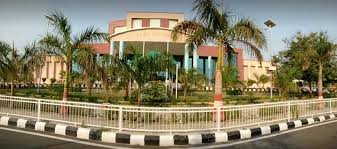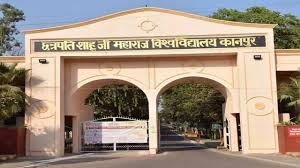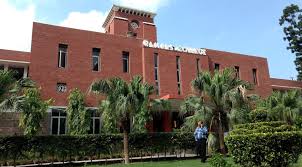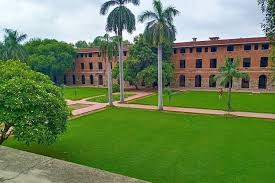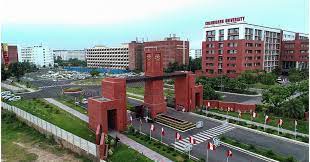M Com (Masters of Commerce) is a two-year postgraduate course offering career opportunities in
accounting, banking, finance, economics, and marketing. It caters to commerce graduates with a minimum
50% score. MCom graduates can explore diverse sectors, including the expanding insurance industry, with
the potential for a promising INR 372,913 per annum salary in India. The program fosters critical
thinking, analytical abilities, and decision-making skills to tackle complex business challenges
effectively.
Why study M Com?
Studying M Com (Masters of Commerce) offers several compelling reasons for individuals looking to advance
their career in the field of business and commerce:
Specialized Knowledge: M Com provides in-depth knowledge and expertise in various areas
of commerce, including accounting, finance, taxation, marketing, economics, and business management.
This specialized knowledge makes graduates valuable assets to employers seeking professionals with a
deep understanding of these subjects.
Career Advancement: An M Com degree enhances career prospects and opens doors to
higher-level positions in companies and organizations. It equips individuals with advanced skills and
qualifications, making them eligible for managerial and leadership roles.
Versatility: M Com is a versatile course that allows graduates to work in diverse
sectors of the economy, offering flexibility in choosing a career path. From finance and banking to
consulting and research, M Com graduates can explore various job opportunities.
Increased Earning Potential: With specialized skills and knowledge, MCom graduates often
command higher salaries compared to those with only undergraduate degrees. The potential for increased
earning potential is a significant incentive for pursuing this postgraduate course.
Personal Growth: M Com not only enhances academic and professional skills but also
fosters personal growth. Students develop critical thinking, problem-solving, and communication skills,
which are valuable in both personal and professional settings.
Networking Opportunities: During the course, students have the chance to interact with
peers, faculty, and industry experts, providing networking opportunities that can prove beneficial for
future career endeavors.
PhD and Research Opportunities: M Com serves as a stepping stone for those interested in
pursuing a Ph.D in commerce-related fields. It opens avenues for research and contributing to academia.
Global Recognition: An M Com degree from a reputable institution holds international
recognition, enabling graduates to explore career opportunities globally.
Overall, studying M Com equips individuals with the necessary tools and knowledge to excel in the
ever-evolving world of commerce, making it an attractive option for those seeking a successful and
rewarding career in this field.
Who should do MCom?
M Com (Masters of Commerce) is an ideal choice for individuals who possess certain aspirations,
educational backgrounds, and career goals. Here are some categories of people who should consider
pursuing M.Com:
Commerce Graduates: M Com is a natural progression for students who have completed their
undergraduate studies in commerce-related fields, such as B.Com or B.Com Honours. It allows them to
deepen their knowledge and specialize in specific areas of commerce.
Aspiring Business Professionals: Individuals aspiring to build a career in accounting,
finance, banking, investment, marketing, economics, or related fields should consider M.Com. The program
provides the necessary skills and expertise to thrive in these sectors.
Career Advancement Seekers: Working professionals who want to advance their careers and
take on managerial or leadership roles in their organizations can benefit from pursuing M Com. The
specialized knowledge and advanced qualifications can propel their career growth.
Future Academicians: Those interested in pursuing a career in teaching or research
within the domain of commerce and business may find M.Com to be a stepping stone towards a PhD and
opportunities in academia.
Business Entrepreneurs: Aspiring entrepreneurs who wish to start their own ventures can
benefit from M Com's knowledge of financial management, marketing strategies, and business planning,
which can help them make informed decisions.
Career Changers: Individuals from diverse academic backgrounds who wish to transition
into the field of commerce can find M.Com a suitable option. The program provides them with the
necessary foundation and expertise to enter the business world.
Skill Development Seekers: M.Com offers a platform for individuals to develop critical
thinking, analytical abilities, problem-solving skills, and effective communication, which are essential
qualities sought after in the business landscape.
Global Career Aspirants: Those looking to explore career opportunities internationally
can benefit from an M Com degree, as it holds recognition in various countries and industries worldwide.
In conclusion, M.Com is well-suited for commerce graduates, aspiring business professionals, career
advancement seekers, future academicians, entrepreneurs, career changers, skill development seekers, and
individuals with global career aspirations. It caters to a wide range of individuals seeking to enhance
their knowledge and expertise in the dynamic world of commerce and opens doors to numerous rewarding
career possibilities.
When to do MCom?
The timing for pursuing an M Com (Masters of Commerce) degree can vary based on individual preferences,
career goals, and educational background. Here are some common scenarios for when to consider doing
MCom:
Immediately After Graduation: Many students choose to pursue M Com right after
completing their undergraduate degree in commerce (B Com, BCom Honours, etc.). This allows them to build
upon the foundational knowledge gained during their bachelor's and specialize in specific areas of
commerce.
Career Advancement: Working professionals who have already started their careers in
commerce-related fields may opt for M Com to advance their career prospects. It can equip them with
advanced skills and qualifications necessary for higher-level roles and promotions.
Aspiring Academicians: Individuals aspiring to become teachers, lecturers, or
researchers in the field of commerce often pursue M Com as a stepping stone towards a Ph.D. and academic
career.
Skill Enhancement: Some individuals may choose to do M.Com to enhance their skills and
knowledge in areas like accounting, finance, marketing, or economics, even if they come from
non-commerce backgrounds.
Career Change: For those looking to transition into commerce-related fields from other
disciplines, M Com can be a suitable choice to gain the necessary expertise and credibility.
Strategic Timing: Some students may decide to take a gap year or gain some work
experience before pursuing MCom to explore various career options and gain clarity on their interests.
Availability of Resources: The decision to pursue M Com may also depend on the
availability of financial resources, scholarships, and the proximity of reputable institutions offering
the course.
Ultimately, the best time to do M Com is subjective and depends on individual circumstances and
objectives. It is essential to carefully consider personal goals, career aspirations, and the readiness
to commit to a postgraduate program before making the decision. Planning and evaluating the timing for
MCom can ensure a more fruitful and rewarding academic journey.

